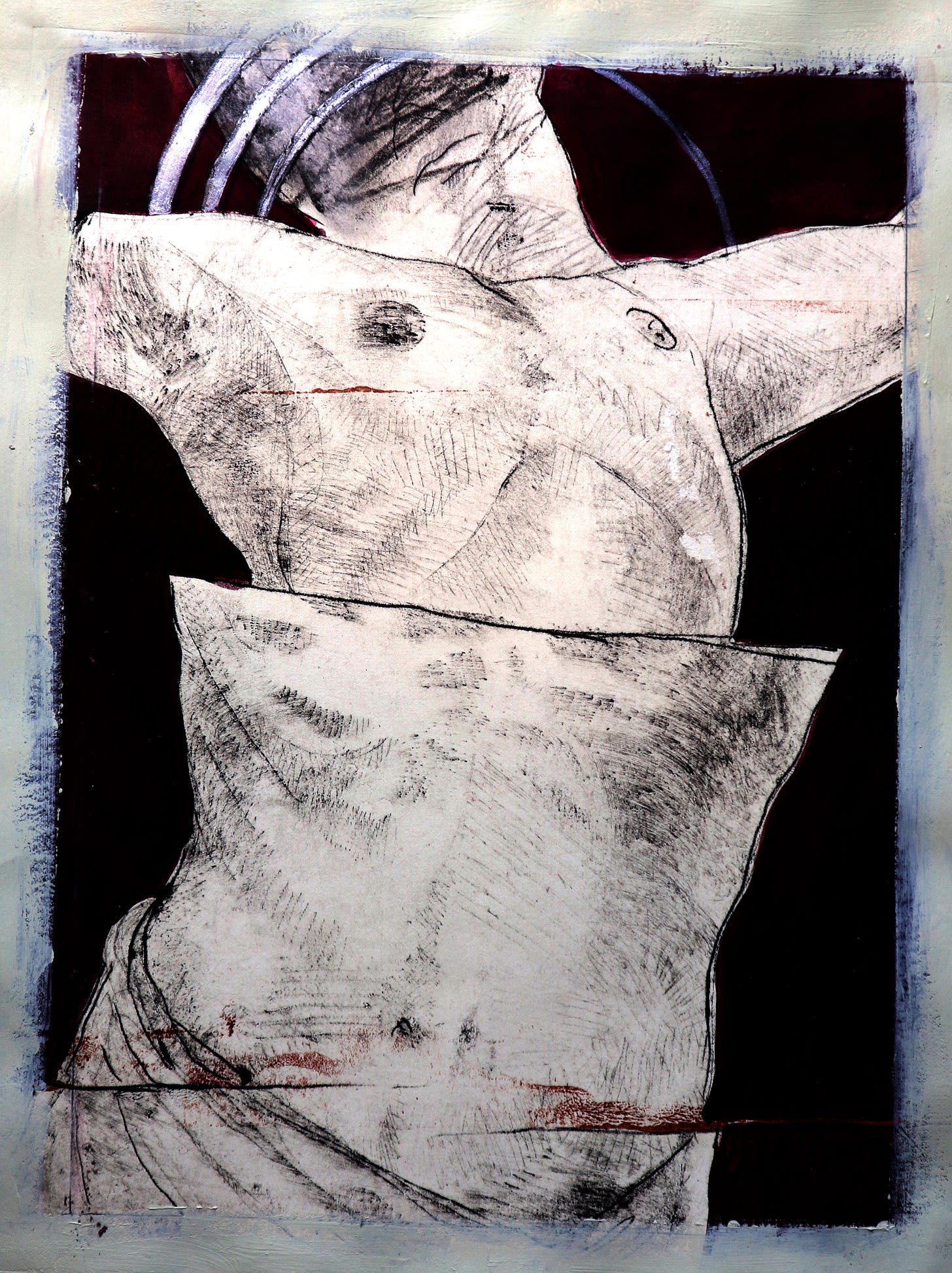Good Friday
What meets at the center of the cross?

Poetry
Cross and Condescension
In the morning of creation, His spirit moved upon the waters, great rivers and small streams flowed down. Riding upon the clouds, He sends showers upon our fields, small rain upon tender branch and bud. In power He commands the waves, speaks to us in storm and flood. He fills fountains, fonts, cups to wash our feet, cleanse our lives, yet on the cross, He cries, I thirst.
Music
Were You There?
Were you there when they crucified my Lord? Were you there when they crucified my Lord? Oh, sometimes it causes me to tremble, tremble, tremble. Were you there when they crucified my Lord? Were you there when they nailed him to the tree? Were you there when they nailed him to the tree? Oh, sometimes it causes me to tremble, tremble, tremble. Were you there when they nailed him to the tree? Were you there when they laid him in the tomb? Were you there when they laid him in the tomb? Oh, sometimes it causes me to tremble, tremble, tremble. Were you there when they laid him in the tomb? Were you there when God raised him from the tomb? Were you there when God raised him from the tomb? Oh, sometimes it causes me to tremble, tremble, tremble. Were you there when God raised him from the tomb?
History
The exact origins of “Were You There When They Crucified My Lord?” is unknown, but it is believed to have been composed by enslaved African Americans in the United States during the early nineteenth century.
The hymn’s lyrics describe the crucifixion of Jesus Christ and His obedience to His Father’s will—giving Himself as a sacrifice for the salvation of humanity. The haunting melody and emotional lyrics not only speak to the intensity of Jesus’s sacrifice but also intentionally included imagery that spoke to the brutality experienced by those who were enslaved. As the singer contemplates the depth of that divine sacrifice, it “causes [them] to tremble.”
The song rose in popularity within Black communities throughout the nineteenth and early twentieth centuries. Its first publication was in 1899 in the book Old Plantation Hymns, a collection of popular spirituals compiled by William Eleazar Barton, an American writer, historian, and Congregationalist minister, as part of his effort to chronicle the history of slavery and the African American experience.
Throughout his career, Barton was a powerful advocate for abolition and civil rights. His most famous work is The Soul of Abraham Lincoln, which explores Lincoln’s religious beliefs and their impact on his life and presidency. The book was a critical and commercial success and helped establish Barton as a leading authority of American history.
Over time, “Were You There When They Crucified My Lord?” became widely known and has been performed by musicians of all backgrounds, including Mahalia Jackson, Johnny Cash, and Joan Baez. It has also become a staple in many Christian denominations during Easter.
by Michael D. Young, from Sacred Days, Sacred Songs
This delicate traditional hymn from Appalachia captures a sense of mystery and awe when we contemplate the magnitude of God’s love for each of us.
What wondrous love is this, O my soul, O my soul
What wondrous love is this, O my soul
What wondrous love is this that caused the Lord of bliss
To bear the dreadful curse for my soul, for my soul
To bear the dreadful curse for my soul
To God and to the Lamb, I will sing, I will sing
To God and to the Lamb, I will sing
To God and to the Lamb, who is the great I Am
While millions join the theme, I will sing, I will sing
While millions join the theme, I will sing
And when from death I'm free, I'll sing on, I'll sing on
And when from death I'm free, I'll sing on
And when from death I'm free, I'll sing and joyful be
And through eternity, I'll sing on, I'll sing on
And through eternity, I'll sing on
Activity Ideas
Make a God's eye and turn the Cross into something beautiful.
Scripture
“And he shall go forth, suffering pains and afflictions and temptations of every kind; and this that the word might be fulfilled which saith he will take upon him the pains and the sicknesses of his people. And he will take upon him death, that he may loose the bands of death which bind his people; and he will take upon him their infirmities, that his bowels may be filled with mercy, according to the flesh, that he may know according to the flesh how to succor his people according to their infirmities.” —Alma 7:11-12




Thank you Rachel and Cecelia. My mornings, this past week, was filled with an abundant devotion as I read and listened to each offering. It has made me feel healed and whole and filled with awe at the love Christ offers us.
I'm so proud to know that my niece is writing such good works. Love Aunt Jan
Thank you for sharing this. I was just discussing Good Friday last night with an LDS friend. We both feel that we could do more to celebrate or commemorate Good Friday.
A few years ago I was in the Sicilian town of Modica for Good Friday. Modica is a crumbly little town with clusters of abandoned homes, the kind you can get for a Euro. We visited the main cathedral, il Duomo di San Giorgio. They were preparing for Mass and a procession. We left for dinner but came back to line up on the street near the duomo to watch the procession.
When Jesus and Mary came out on their respective palanquins and carried down towards Corso S. Giorgio, there was quiet. When a kid spoke out, he was quickly shushed by his mother: "Shhh...è Gesu!" The whole crowd was reverent and respectful. It was a beautiful thing.